.
I took a walk today, the first sunny day over 30 degrees Fahrenheit in a long time, and I was mulling over this newsletter a little, and suddenly thought, out of the blue, "What a pleasure books have been to me!" Just a little moment of gratitude for all the journeys I've had with books. There is nothing for me like the pleasure of going into the world of a novel-- it lasts a long time, compared to, say, a movie, but I think, for me at least, what's most pleasurable is the way it plugs directly into my imagination. I do a lot of the work of creating the reading experience: I hear the voices, I imagine the faces, and that work makes the book much more mine than other media. And when I reread something I first read decades ago, it is like a new experience, but with extra depth.
I'm not going to say much this month about some genre books I enjoyed a lot-- except to recommend them: first, the Fool series by my new fave fantasist, Robin Hobb, and then Michael Nava's Henry Rios mysteries about a gay Mexican-American lawyer (The Little Death, Goldenboy, Howtown, The Hidden Law, The Death of Friends, The Burning Plain , Rag and Bone). The latter books have a wonderfully precise evoction of urban California during the height of the AIDS crisis.
I also will say relatively little about most of the highly reviewed and popular books I liked: one was Justin Torres's
We the Animals, which I gobbled in a couple of hours. He says he writes word by word painstakingly slowly, and I believe it, because it is quite perfect, line by line. It's a kind of elegy for a dangerous and violent yet still somehow magical childhood.
Also popular and not needing my praise is
I
Gilead by Marilynne Robinson (and her new book set in Gilean,
Lila, just wond the
National Book Critics Circle award for 2015).
Gilead had been on my mental list for a while, and I found it strong, slow, and moving. Indeed, it took a while for me to settle in to it, but I ended up teary-eyed. About the only thing James Wood missed in his excellent review in
The New York Times is that the book is not really the story of one rather limited but kindly pastor– John Ames –bur rather the story of a town, Gilead, which has several other John Ameses– including the pastor's wild prophetic grandfather who rode with John Brown. I was also interested to find
Gilead on a list of novels that are supposed to be
both good literature and Christian friendly.
Two Old Women by Velma Wallis, has apparently been a best seller, although I only recently heard of it. It is sometimes classified as a book for adults, sometimes for children, perhaps because it's so small. The writer is a Gwich'in Athabascan Indian, born

in 1960. She hasn't published a lot. I looked for an image of her via Google, and one picture I found was of her a few years back speaking about one of her brothers who was homeless and burned to death.
I don't know her present world or her cultural past, but Two Old Women is wonderful. It is in the form of a legend told by a mother to a daughter. It tells of two elder-women left behind by their nomadic band to die during a time of extremely tight resources. They are not simply victims-- indeed, it turns out they have been demanding and lazy. They also have rich memories of their own lives and also of how to do things. They do extremely well on their own for a whole year, accumulating large stores of dried fish and meat, rabbit fur gloves and homemade coats. They are contacted again by their band, who are still starving, and there is guilt and distrust on all sides, and then a slow, painstaking reconciliation. Everyone learns respect, and the two old women learn not to expect always to be taken care of-- that they need to share their efforts and knowledge. This is a really interesting happy ending of a group experience rather than an individual one.
As long as
Two Old Women is short, is a book about two old men: Larry McMurty's
Lonesome Dove. I was raised on cowboy movies and cowboy TV shows, and while I have criticisms of
Lonesome Dove, I mostly just ate it up. The men characters are fighter-killer-drinker-whore-ers who are entertaining and amusing and incredibly hard- headed and often destructive and self-destructive.

The two old men, former Texas Ranger partners Woodrow Call and Gus McCrae, are bored with their settled life near the Rio Grande River. They set off almost casually on a cattle drive to claim ranch land in Montana. This is at period at the end of the Comanche wars (the period detailed in the
book about Quanah Parker book I reviewed recently ).
There's plenty of human evil– rape and death by gun, arrow, and hanging– as well as violent weather and wonderfully fierce animals: bison, grizzly bears, a nightmare of water moccasins. There are also lots of passages of crude humor, the sort of laughing at ugliness that men living in rough conditions seem to use to keep themselves sane. The book is thoroughly successful at what it sets out to do, in spite of my annoyance when my favorite characters start getting killed off in ways that sometimes feel manipulative (spoilers ensue): weak puppy-eyed Jake; heroic Deets; best point of view character, Gus. I assume McMurty is making a point here that anyone can go at any time (which can hardly be disputed), but he is also carrying out a plan for showing– however much he delights in his cowboys and Indians and rangers and whores– that this cattle drive and maybe the whole western expansion by Europeans over the North American continent was possibly ill-fated and maybe even meaningless.
It's probably significant that most of the survivors at the end, with one or two exceptions, are the least colorful-- that would be most of the women and a couple of relatively clueless men. It's a fine book, and during my reading, I kept waking up in the morning still thinking of it. For those of us who grew up with
Gunsmoke and
High Noon and Roy Rogers and Gene Autry, it fulfills an old craving.
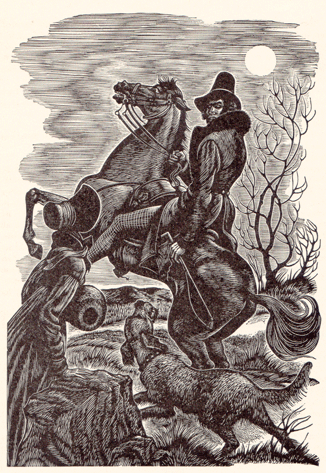
For the rest of you, read it as a fine example of Americana.
.
I also reread-- again!--
Jane Eyre, so important to me as a girl, and of renewed interested because a
colleague of mine is writing a spin-off of it. It's been a hard winter here in the northeast, and a Victorian novel with the snow outside always hits the spot.
I enjoyed this adult reread hugely (I read it on my Kindle, but kept picturing the 1943 Fritz Eichenberg wood cuts that were in the first edition I read). It is just so entertainingly histrionic! Jane is so brave! She stands up to Mr. Rochester and of course he has to fall in love with her! And Mr. R. is such an entitled jerk when he's in his full strength, rich and playing unpleasant tricks on people. St. John Rivers is worse– he's the handsome cold fish who tries to drag Jane into a loveless marriage because he needs a female missionary companion and thinks she would be just the ticket. Really, the men are hopeless. Mr. R. barely passes muster at the end because he really does love Jane, and, of course, he is by that point famously wounded and needy.
.
My other reread was
The Ambassadors by Henry James. It was written in 1903, and there is some reason to call it the first modern novel: it probably inspired Dorothy Richardson and her not-much-read (certainly not by me) stream-of-consciousness work which
was, however, read by Virginia Woolf and James Joyce, both of whom almost certainly read
The Ambassadors as well. There's a nice piece online in praise of its modernism at
http://www.fractiousfiction.com/the_ambassadors.html.
I have to say it's a novel I've always admired more than loved. It's the story of an American, Lambert Strether, who is sent by the

rich widow to whom he is affianced, to bring her adult son back from Europe where he is supposedly in the clutches of a fallen woman. Strether is determined to do right by his task, but he is also fully open to new impressions and beauty-- to Europe.
I can't say I am sympathetic to the leisure class preciousness of most of the characters, let alone their the highly developed manners and lavender gloves and collecting of bibelots. The story, though, has splendid sharp scenes, especially toward the end, as young Chad Newsome's future becomes pretty clear, and Mme. De Vionnet breaks down when she realizes she is going to lose him. Strether comments that in spite of how amazingly improved Chad is (more sophisticated, courteous, educated), he's still Chad-- which turns out to mean a young American man having his adventures before settling down to business. And really, who can blame him for wanting to do something active with his life?
The never-onstage Mrs. Newsome, Chad's mother, is wonderfully done: she is threatening and peremptory, and, in a brilliant touch, James has Strether decide that his only correct action is to go home with nothing for himself (he turns down an American expatriate's offer to make a nice life for him in Paris.) When Chad's sister and brother-in-law and a potential wife visit, the events are funny–The Ambassadors is, in fact, a much more humorous book than anyone gives it credit for.
When James stops elaborating mental states and recording long conversations and does scenes, you remember that he was first a powerful realist novelist, and that everything he is doing here is exactly what he means to do. It's a novel with terrific bones, and if I occasionally drifted away, I always came back. He himself rated The Ambassadors highest among his books. He told some stunned friends they should 5 pages at a time, but to keep reading.
SHORT TAKES
Just Published!
Vera's Will covers the twentieth century with sweep and passion. It begins with the Kishinev pogrom and a family of Jewish immigrants to the United States. It is also the story of a woman's discovery she's a lesbian. The woman, Vera, has a
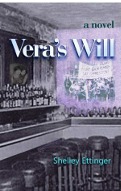
devastating series of losses: she is removed from her lover, and her husband, when he discovers her sexual orientation, separates her from her beloved little sons. She spends much of her life in a misguided belief that she has to stay away from women as an alcoholic has to stay away from liquor. Vera's life is thus constrained and built on pain and loss, yet she is determined to be in her sons' lives in any way possible. She manages through sacrifice and loneliness also to maintain her self-respect and dignity.
Structurally, the novel balances Vera's story with that of her granddaughter Randy, who is a second half twentieth century woman who also discovers she is a lesbian, but in a time with more paths open to her. Randy's life is to some extent twisted too, not by who she loves, but by her formidably damaged father, the boy who suffered most from the exile of his mother. Randy survives and comes out as a Lesbian and an activist. Her childhood sections are terrific, and so is the depiction of the damage done to three generations by separating a lesbian mother from her sons.
I've rarely read better characters with deep flaws and admirable values. There is a happy ending in Randy's personal life, and a general hopefulness in the political future of all oppressed people. It's an exciting, excellent book. Get another opinion in the rave review in
Library Journal that calls
Vera's Will "powerful, superbly written" and "a breathtaking achievement."
.
.
.
COMING SOON
Trampoline: An Illustrated Novel by Robert Gipe came to me as an advanced reading copy, and I just flipped through a few pages, not expecting too much, and got sucked in before I knew what hit me. The illustrations, also by Robert Gipe, are little b&w images of narrator Dawn Jewell's face with a line of dialog or monologue. I don't know that they are necessary to the story, but they make an attractive punctuation.
The story is of a teenage girl caught up in the sometimes-violent antics of her trashy, drug-dealing junk-food-scarfing Kentucky family. Her voice is wonderful, and she relates one incident leading to the next in a way that seems to define the lives of the poorest: you have to do something to get some money, you have to do something to anesthetize your hopelessness, you get in an argument, you throw a punch, you end up in the emergency room or thrown out of school, you get released and still need the money and the anesthesia, and it all starts over again..
Happily, and quite realistically, the novel also has a strong sub-plot--or maybe super-plot-- about Dawn's grandmother being an organizer against mountaintop removal. There are brief organizing scenes, and a visit to the governor (an excellent scene in which Dawn gets a glimpse of how the world works at the top), and, while the people on Blue Boar mountain get a bit of a reprieve, this story is set at the end of the nineties, so we know that the mountains are still being beheaded. The limits to how far any individual's political efforts can go is realistic, and the political and personal are woven together extremely well.
At one point, Dawn talks about the dilemma of those who love the mountains but also tear them up to make a living:
"Those Coal miners who had been so good to me, who had loved me through my tree-hugging ways, needed mountains and woods more than any of us. They loved it here, and they had to tear it up to stay. The full hard hardness of their lot came down on me that winter night, and I knew maybe not them but other coal-mining people would be mad at me, would hate me, but after that night, I never was mad at them, not the ones who lived here with me, not the ones taking their own sorrow and joy from what was left of these trees, these rocks, these rustling waters." (P. 226)
Another thread is Dawn's search for a young radio DJ over a state line (to Kingsport, Tennessee) whose voice appeals to her. The whole novel is essentially Thanksgiving though the Christmas holidays with fights, oxytocin, moonshine, attempted suicide, possible murder or maybe just death, plus a little unsexy sex– it's a heartbreakingly real story, with an excellent use of contemporary Appalachian voices.
The Waiting Years by Fumiko Enchi is about the family of a Japanese government official who is a
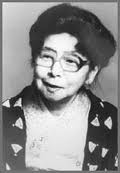
sort of anti-Prince Genji. Genji, the Shining Prince, is the hero of an eleventh century novel centering on the love affairs of a prince who seems remarkably always to keep his women happy, even when he takes a new lover: he builds new new wings to his palace for each beloved.
The Waiting Years is about a family where the women are notably not happy. The man forces his wife to find him the perfect concubine, then takes another, and eventually has an affair with his daughter-in-law.The long-suffering primary wife, Tomo, meanwhile, does all the family business. She collects rents, does accounts, and lives a grimly proper life shut out of any kind of affection. It is not a single point of view, but is mostly Tomo's story as she yearns for a particular kind of revenge– one that includes saving the family.
As in Enchi's other novel I read (see
issue 172 ), I know I'm missing a lot of the subtleties of Japanese culture, and why certain things that seem like no biggie to me are shocking to the characters. Sex, pregnancy, even hemorrhoids, however, are treated with practicality.
Tomo's dilemma, and that of the other women in the household, moves me, even when I don't always quite get why.
READER COMMENTS
Phyllis Moore writes: "Crystal Wilkinson's book list ( in the
Extra to Issue # 175) is a snapshot of classic books by Appalachian African American authors. She included poets, biographers, historians, and novelist. BLACKS IN APPALCHIA and BEETLECREEK are both excellent jumping off points for readers interested in an accurate view of life as it was and as it is in this one section of the USA."
Note: In the
Extra to Issue # 175 in January, I asked for thoughts about the future of where we'll get our ideas for what to read--where the gatekeepers will come from. I wrote about it in a
blog post, largely in reaction to an
essay at Slate by Daniel Menaker.
In fact, as Johnny Sundstrom says below, reviews like
Books for Readers can be part of the answer. I picture a time when we go first to certain blogs or newsletters we partcularly like. I often take a look at
Goodreads after I've started a book to see some comments on it. I also use
Books for Readers for my own reading. A lot of what I've read in the last few years comes directly from suggestions people gaave me here.
Johnny Sundstrom wrote (and thanks for the compliments!): " You've done a great job at what you're asking to be done, being a 'gatekeeper' and a guide to good writing. In spite of efforts such as yours, the issues you raise and the quandaries all serious writing faces today are omnipresent and growing. The feeling of futility that confronts an 'unknown' writer today is probably not that different than what has always been there for those who become discouraged from even trying or who have been frustrated by the always present lack of opportunity presented by the limited access to the opportunities controlled by commerce.
"However, the sheer quantity of 'crap' and the current state of the pop/money market has to be even more daunting than ever. My quick response to your questions (without much thought going into it) is that the world's Librarians and wannabe librarians, whether publicly supported and/or working in academia, are also an endangered species, and they are by and large booklovers themselves and have literary qualifications and experience. Perhaps as a part of their vocations and avocations, they could be enlisted and organized into a Voice and outlet for the preservation of reading and writing that serves both the writing/reading communities and their own survival as a pillar of an enlightened society.
"This would not necessarily be an attempt to get more people to use libraries so much as it would add to the job description and value of the profession, and through the internet become a valuable service in the interests of the goals you are suggesting.
"Thanks for all you're doing."
JOHN BIRCH E-READER REPORT: E-BOOKS WILL REPLACE OLD-FASHIONED PAPER SCHOOLBOOKS – BUT HOW?
A recent survey of 475 educators – mostly school and district leaders -- predicts a massive growth of the market for e-books in schools in the next two years, replacing traditional paper schoolbooks. Parents will be delighted, because schoolbooks have always seemed shockingly pricey, and even kindergartners and other youngsters, overburdened by their backpacks, will relish a lighter load. But will e-books really work? How easily can you look back a couple of pages for a minute or two, or jump forward a chapter or two, or jump to the contents and back, or consult the index, or a glossary or a cast of characters? I asked a similar question in the last Newsletter, but on that occasion in everyday use of e-book readers. But the problem's even more acute in the case of, say, a science, history or biology textbook.
Don't miss John's latest post on his blog, "Lazy Saint," at
blog.
BOOK LEAF REPORT
LISTS
READ AND LISTEN ONLINE
Poetry by Billy Cancel, Darren C. Demaree, Howie Good, Nels Hanson, Nora Iuga, Seth Jani, Dan Lewis, Kevin McLellan, Kat Meads, Simon Perchik, Erin Redfern, Margaret A. Robinson, Terry Savoie, Elaine Sexton, D.E. Steward, Mark Young, and Lisa Zimmerman; Fiction by Peggy Backman, Dreama Wyant Frisk, Edward Miller, Caleb Okereke, Michael Price, Patty Somlo, Peter Speziale, and Scott Wheatley; Nonfiction by Liza Case, Chelsey Clammer, Reamy Jansen, Dean G. Loumbas, Gregg Orifici, and Steven Roiphe.
Jane Lazarre has an essay on Tom Dispatch.
ABE books has a funny list of famous books that had a lot of rejections: Tales from the Slushpile.
ANNOUNCEMENTS, BOOKS RECEIVED, CONTESTS, WORKSHOPS, READINGS ETC.
Erik Corr's
The Kingdom of Assassins now available. It's also at
amazon. "In the near future, a disillusioned New York City Counter-terrorist detective investigates a terrorist cell. A beautiful Arabian Princess comes to identify one of the dead from an assault on a safe house. Later during the investigation a Saudi Diplomat is also found dead, as well as another man with no identity. Tensions rise between Iran and the Kingdom of Saudi Arabia. From the concrete canyons of New York City to the searing oceans of sand in Arabia, Detective Mike Maclaymore purses the truth to its terrifying conclusion."
Just out from Ohio University Press: Every River on Earth: Writing from Southern Appalachia, edited by Neil Carpathios with a foreword by Donald Ray Pollock.
Valerie Nieman's second poetry collection,
Hotel Worthy, is now available from Press 53 and on Amazon. Joseph Bathanti says, "There abides in its pages an uncanny past wrought into poems that spring from a memory – from a vast, liturgical acumen – that unites the dead with the living, restores the abandoned, returns the missing. This is a startling book. The language – its lyric nuance, its plaintive harmonies, its ceremonial beauty – is unforgettable." Val will be touring for the book. Watch

for her from Greensboro, North Carolina to the New School in New York City to Charleston, SC and Blairsville, GA.
Jane Hicks has a new book of poetry,
Driving With the Dead. It's from The University Press of Kentucky, published the last quarter of 2014. I hope to have a review of this one soon.
Do you want to own your own poetry magazine??
Long-time editor Juanita Torrence-Thompson is donating Mobius so it can stay alive. If any group, poet, editor, college, etc. might be interested in editing and publishing Mobius, please send her the information. She is available to offer limited assistance as a consultant the first year. Moving the magazine online is okay.
Here are a few of the award winning poets whose work has appeared in MOBIUS along with many people just starting out: Billy Collins, Rita Dove, Nikki Giovanni, Marge Piercy, Robert Bly, Sonia Sanchez, Natasha Trethewey, Naomi Shihab Nye, Charles Simic, Elizabeth Alexander, Cornelius Eady, Colette Inez, Yusef Komunyakaa, Diane Wakoski, Denise Duhamel, Virgil Suarez, Samuel Menashe, Maurice Kenny, Simon Ortiz, Carter Revard, Simon Perchik, Lyn Lifshin, Duane Niatum, Joseph Bruchac, Ed Galing, Daniela Gioseffi, Louis Reyes Rivera, Patricia Smith, Hal Sirowitz, Stephen Stepanchev, Rochelle Ratner, Susan Terris, Tammy Nuzzo-Morgan, Antony Oldknow, Daniel Thomas Moran, Thad Rutkowski, Ellaraine Lockie, and A.D. Winans.
The Epiphany Chapbook Contest-- excellent judges in the categories of Fiction, Nonfiction, Poetry & Graphic Lit. Full details and guidelines are listed here:
http://epiphanyzine.com/submit.html


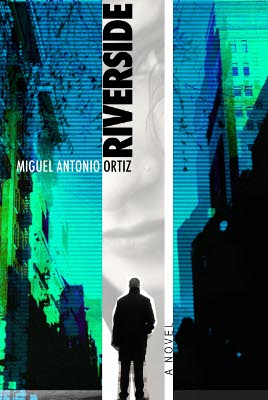


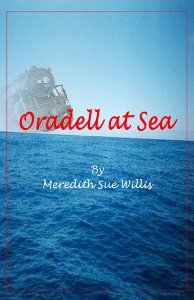




 The two old men, former Texas Ranger partners Woodrow Call and Gus McCrae, are bored with their settled life near the Rio Grande River. They set off almost casually on a cattle drive to claim ranch land in Montana. This is at period at the end of the Comanche wars (the period detailed in the
The two old men, former Texas Ranger partners Woodrow Call and Gus McCrae, are bored with their settled life near the Rio Grande River. They set off almost casually on a cattle drive to claim ranch land in Montana. This is at period at the end of the Comanche wars (the period detailed in the 
 rich widow to whom he is affianced, to bring her adult son back from Europe where he is supposedly in the clutches of a fallen woman. Strether is determined to do right by his task, but he is also fully open to new impressions and beauty-- to Europe.
rich widow to whom he is affianced, to bring her adult son back from Europe where he is supposedly in the clutches of a fallen woman. Strether is determined to do right by his task, but he is also fully open to new impressions and beauty-- to Europe. devastating series of losses: she is removed from her lover, and her husband, when he discovers her sexual orientation, separates her from her beloved little sons. She spends much of her life in a misguided belief that she has to stay away from women as an alcoholic has to stay away from liquor. Vera's life is thus constrained and built on pain and loss, yet she is determined to be in her sons' lives in any way possible. She manages through sacrifice and loneliness also to maintain her self-respect and dignity.
devastating series of losses: she is removed from her lover, and her husband, when he discovers her sexual orientation, separates her from her beloved little sons. She spends much of her life in a misguided belief that she has to stay away from women as an alcoholic has to stay away from liquor. Vera's life is thus constrained and built on pain and loss, yet she is determined to be in her sons' lives in any way possible. She manages through sacrifice and loneliness also to maintain her self-respect and dignity.
 for her from Greensboro, North Carolina to the New School in New York City to Charleston, SC and Blairsville, GA.
for her from Greensboro, North Carolina to the New School in New York City to Charleston, SC and Blairsville, GA.
